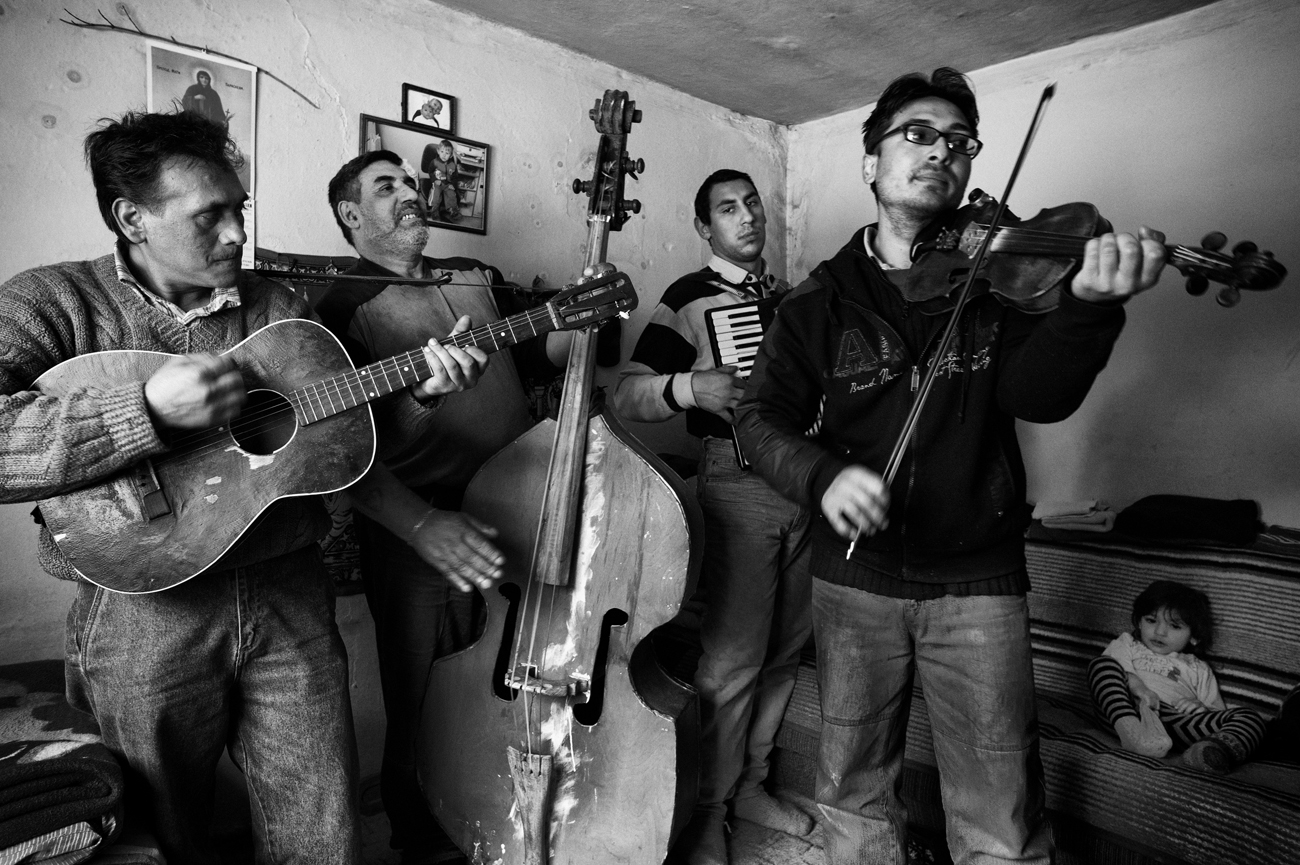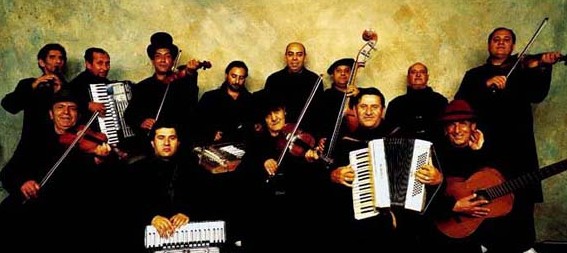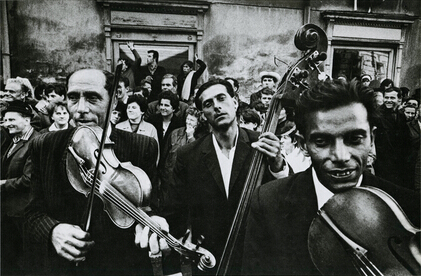By Simina Mistreanu
On a Friday night this month I went to a concert at Modernista, a bar in the hutongs, near Gulou Dong Dajie. The band playing was called Sama. Its members are Uyghur from Xinjiang Province. They played a very danceable mix of traditional Uyghur music, flamenco, rumba and samba.
一个周五晚上,在一个胡同酒吧,我看了一个叫“Sama”的乐队的现场演出。他们来自新疆乌鲁木齐,音乐里面有传统的新疆民乐、弗拉门戈,还听得出伦巴和桑巴的元素。

Many of the songs were covers that I was familiar with. I hummed along while dancing with friends. At some point, I realized that the words I was singing were in Romanian: It was a very old Romanian Roma song called “Gypsy girl, you’re beautiful” (“Țigăncușă, eștifrumoasă”).
许多歌曲都起来都非常熟悉。我开始随着音乐哼唱,起舞。我发现自己下意识唱的居然是罗马尼亚语,这是一首非常古老的罗马尼亚吉普赛人的歌,叫做“吉普赛女孩,美丽的你”。
A bit of background before I proceed: Roma, also referred to as Gypsies, are Europe’s largest ethnic minority. An estimated 12 million Roma live in Europe, 1 million live in the United States, about 800,000 live in Brazil and so on. They are believed to have migrated about a millennium ago from northern India. Roma have been portrayed in popular culture as nomads, exotic beauties, con men and fortunetellers.

吉普赛人是欧洲最大的少数族裔。大约有一千两百万罗马人生活在欧洲,一百万在美国,八十万在巴西……大概在一千年前,他们从印度北部移民到世界各地,他们是游牧民族,有着独特的美丽容貌,他们中有骗子,还有占卜师……

I grew up in Romania, a country with one of the largest Roma populations in the world (an estimated 1.8 million Roma live there, or 10 percent of Romania’s population). Roma face discrimination around the world, and while my family raised us to be kind and inclusive, I was still taught, as a child, that when our dog barked it was either because a horse-drawn carriage or a Roma was passing by on the street.
我生在罗马尼亚,这里有超过一百八十万吉普赛人,占到整个罗马尼亚人口的10%。吉普赛人在全球各地都受尽歧视,尽管我一直被教育要宽容友善,我还是从小就听说,如果家里狗突然叫唤了,不是因为马车就是因为有个吉普赛人路过。
Ironically, the first time I seriously considered Roma’s plight was when I met a Roma family in Wichita, Kansas, during my three-year stay in the United States. The strength of their ancient stories but also their constant struggle to fit in the non-Roma world fascinated me. I wrote a story about the family and started reporting several others, on a postgraduate fellowship from the University of Missouri.
很讽刺的是,我第一次思考吉普赛人的困境是在堪萨斯城的威奇托遇到一个吉普赛家庭的时候。我被他们的家族历史和他们努力融入非吉普赛人群体的故事深深吸引了。在密苏里大学念研究生的时候,我写了一篇关于他们家庭的故事。

By becoming immersed in the Roma world, I also discovered what a universal strength their music carries. Gypsy music is known for its fast rhythms, violin and brass tunes. It’s been played and adapted by Roma and non-Roma bands around the world. Part of its strength comes from history: Roma musicians and entertainers form an occupational group, similar to the Indian casts (other groups include blacksmiths and goldsmiths).
慢慢融入吉普赛人的群体,我还发现了他们的音乐天赋。吉普赛音乐的特点在于它的快节奏、独特的小提琴和管乐器的调调。现在,全世界的乐队都在吸收他们的音乐元素。在历史上,吉普赛音乐家和演艺人员就很擅长把自己训练的职业化。

For centuries, they’ve played at weddings and funerals to earn a living. They passed the craft from father to son – exclusively by ear, partly because Roma have traditionally kept away from formal education.
几个世纪以来,他们都在婚礼和葬礼上演奏,赚钱。耳濡目染之下,这种技艺就从他们的父辈传到子辈,加之吉普赛人长期被排斥在正规教育之外,他们更是拼命抓住做音乐这根救命稻草。

I've met Americans who flew into Eastern Europe and spent several weeks learning from a traditional Roma musician so that they could return to the States and form a Gypsy music band. I met a young woman of Roma descent who was born in the U.S. and studied classical music at Amherst College, only to find herself drawn to Romania to learn from Roma street musicians. I’ve met a group of Roma peasants from a small village who become international celebrities and played at the best venues in the world.
我曾经见过美国人特地飞到东欧,在那里花几周的世界向传统的吉普赛音乐家拜师学艺。回到美国后,他们甚至还会组建吉普赛风格的乐队。我遇到过一个吉普赛后裔,她生在美国,一直在阿默斯特学院学习传统音乐,然而最后她发现,她最终还是得向吉普赛的街头音乐家学习。还有一群从小镇子走出来的普普通通的吉普赛农民,他们最后成为国际名流,在世界上最好的音乐厅演奏。

I always wondered how a culture that seems to have failed in so many aspects – poverty and literacy rates, child and women rights – has managed to produce such durable music. One that piqued the interest even of a young band from Xinjiang province performing in Beijing.
这样一个贫穷、识字率低、妇幼权利不能得到保障的族裔,怎么可以产出如此持久美妙的音乐?这就类似于一个来自演员新疆的乐队怎么竟然在北京开始他们的音乐生涯吧。




评论